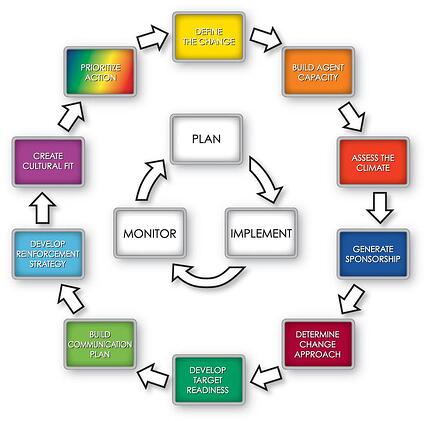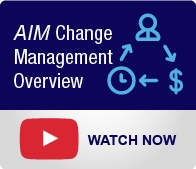One of the most shocking pieces of advice we give to our Change Management Consulting clients is to STOP talking about Change Management. Wait. Back up. Did we just say, don’t talk about the one thing that can help organizational change projects be implemented more successfully? Yes we did. And here’s why. 
Hopefully, as Change Agents we understand the value of using a sound Change Management Methodology, but when it comes to other leaders and colleagues within your organization, this most likely, isn’t the case.
When our Change Management Consultants go in front of a group of a leaders to conduct an Executive Briefing we will never mention Change Management or a Change Management Methodology! Instead we talk about how we can help get projects done faster, better, and at a higher level of quality. We talk about how we can get their strategic initiatives implemented more quickly and get the intended benefit realization.
We use business terms to speak to business leaders because we understand that executives really aren't interested in what type of methodology will be used, they just want to see results.
The trick is to ensure Change Management Professionals are concerned about their approach to Change Management.
The Costs of Not Using a Sound Change Management Approach
How many projects in your organization have been labeled a failure? Perhaps there was an ERP implementation that was quietly withdrawn, or an acquisition that was never fully integrated or a shared services implementation that didn’t deliver the intended value.
When organizations experience implementation failures, the direct, short-term costs are fairly obvious:
- Wasted money
- Wasted time
- Wasted resources
- Business objectives that aren't achieved
The more significant costs may not be quite as clear, but are long-term, and just as damaging:
- Confidence in leadership decreases
- Resistance to change increases
- Future changes are more likely to slow down or fail
If we can reduce the risks for failed or sub-optimized projects by applying a repeatable implementation process, we can impact business results, faster and more successfully.
The Business Case for AIM
During any organizational change, there is great value in having a set of core principles guide your way. The practicality and repeatability of the Accelerating Implementation Methodology (AIM) go a long way, to reducing the risks of project failure or sub-optimization.
We tell our clients all the time that the AIM principles are just like an electronic dashboard in your car; if your windshield wiper fluid is low, you react one way. If your check engine light appears, that is an entirely different matter!
Similarly, the AIM Change Management Methodology is derived from a set of core principles that provide directional guidance during the project lifecycle. And since change isn't linear, these core principles provide the basis for a flexible, iterative approach that accurately reflects the reality of implementation.
It bears repeating that the goal isn't "to do" AIM, but rather to have these core principles tell us what we should be doing now. By doing this, you’ll be able to deliver an implementation that is:
- On time
- On budget
- With all technical objectives met
- All business objectives met AND
- All human objectives met
But remember.... when talking about change with others in your own organization don't talk about AIM or Change Management or a Change Management Methodology. Just do the work of:
- Defining the change in behavioral terms
- Building the cascade of Sponsorship
- Setting up an effective localized Change Agent network
- Managing resistance
- Developing communications that are two-way
- Creating a menu of reinforcements to drive behavior change
And for now, we’ll just keep it our little secret that what you’re really doing is using a practical, business-focused Change Management Approach to achieve sustained implementation success.


